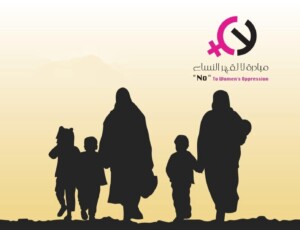More rapes in Nierteti, Central Darfur
Three members of the paramilitary Border Guards raped two girls in Nierteti locality in Central Darfur on Saturday. According to the New York-based African Centre for Justice and Peace Studies (ACJPS) the Sudanese criminal law does not protect rape victims.
Three members of the paramilitary Border Guards raped two girls in Nierteti locality in Central Darfur on Saturday. According to the New York-based African Centre for Justice and Peace Studies (ACJPS) the Sudanese criminal law does not protect rape victims.
The girls, aged 13 and 12, were collecting firewood south of Nierteti, when they were ambushed, a witness reported to Radio Dabanga. The militiamen repeatedly raped them at gunpoint.
The source added that army and police forces arrested one of the perpetrators. The other two fled.
The incident was reported to the police, and the two victims were taken to Nierteti Hospital.
Investigation
Last week, three young firewood collectors were raped by gunmen in separate incidents in the same area.
In response, ACJPS called on the Sudanese authorities to investigate the rapes. “A special prosecutor should be appointed to the case should the victims wish to proceed with a criminal prosecution. Local authorities must guarantee the victims protection from reprisal.”
The African Centre further called for measures to protect civilians, especially the vulnerable groups in and around Nierteti camps for the displaced.
The international community, particularly the EU, AU, and the USA, to “publicly and privately press the Sudanese government to meet its obligations under international human rights and humanitarian law and to ensure unfettered access by Unamid peacekeepers and humanitarian actors to all parts of Darfur”.
Impunity
ACJPS further criticised the serious barriers to justice and the climate of endemic impunity for perpetrators in Darfur.
“The scale of sexual violence in Darfur is likely much greater than any reports indicate. Independent monitors are unable to access most of Sudan’s conflict affected areas and survivors often do not report incidents, owing to insecurity, stigma, the fear of reprisal and other obstacles.
“Among the obstacles are laws and policies that fail to ensure a safe environment for reporting sexual and gender based violence incidents and a consistent failure to prosecute these crimes,” ACJPS stated. Despite changes to the definition of rape in Sudan’s criminal law in 2015, the law remains unclear about evidence standards that apply and women who report sexual offences remain at risk of prosecution for adultery or committing “immoral acts” if they fail to prove a rape case.
“To date, the Government of Sudan has not ratified the Protocol to the African Charter on Human and Peoples’ Rights on the Rights of Women in Africa, or the Convention on the Elimination of All Forms of Discrimination against Women (CEDAW), alongside the Optional Protocol to it of 2000.”











 and then
and then